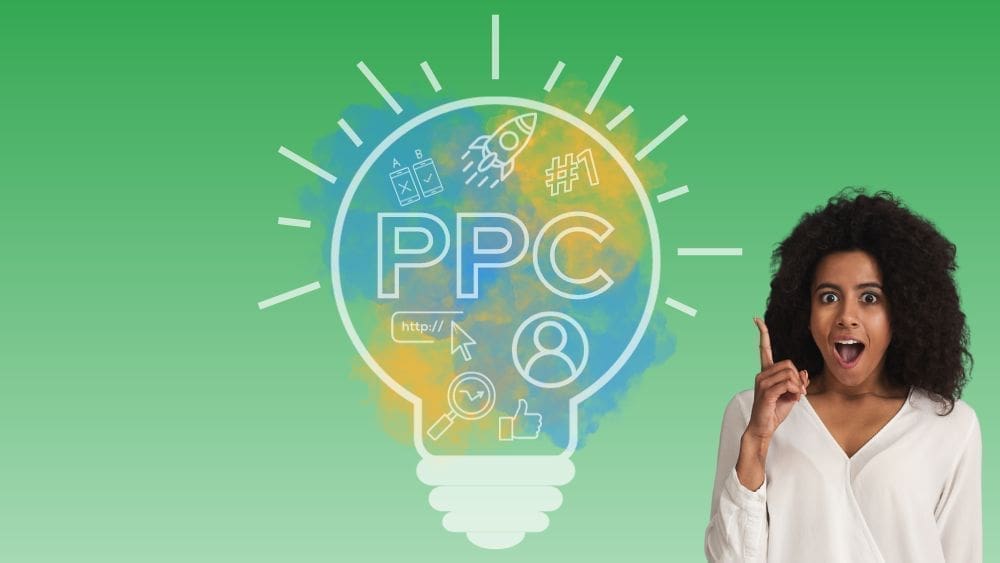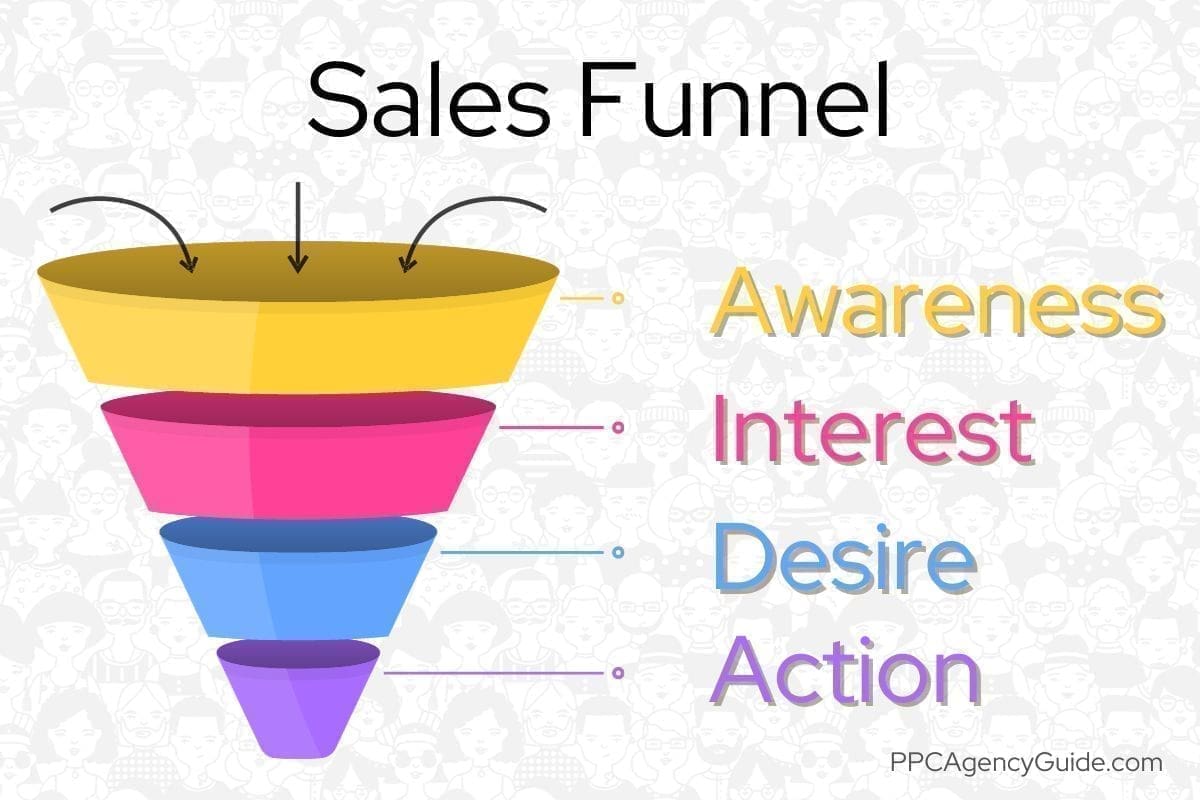
When people run searches for “How do I improve my digital marketing,” they’re usually looking for a quick fix. However, once you have covered the basics like PPC, email marketing, and social media, quick fixes are hard to come by. SEO, for example, takes months to produce results. Digital marketing results, therefore, are rarely improved overnight. It’s through continuous work and ongoing optimization that the best results are achieved.
But, those using PPC have a distinct advantage that goes far beyond the sales and leads that you receive as a direct result of your paid advertising campaigns. You can actually use PPC to improve the rest of your digital marketing initiatives. Give us a few moments, and we’ll walk you through how it works.
What is PPC in Digital Marketing
When people reference PPC in digital marketing, they’re talking about pay-per-click (PPC) ads. It’s a broad umbrella that covers any type of paid advertising in which the advertiser pays each time a user or potential customer clicks their ad. This includes quintessential graphical banner ads that have been around since the dawn of the internet, newer display ads that come in a variety of formats, and search ads that appear at the top of search engines like Google when people look things up. PPC ads are shown everywhere online today, including search engines, social media, and third-party websites.
Why PPC is Important to Digital Marketing
Before we get into how to improve digital marketing through PPC, let’s quickly cover some reasons why you should already have PPC ads up and running.
- Fast Results: PPC is important in digital marketing strategies because it’s one of the few things that produces instant results. You can post ads today and start generating website traffic immediately.
- Low Cost: The average cost per click for search is just $1.54 on Microsoft or $4.22 on Google, as covered in our PPC benchmark report. This makes it easy for most brands to include PPC in their marketing budgets.
- ROI: On average, brands get $2 back for every $1 spent on PPC, according to TechJury.
- Diversify Digital Marketing: Things change rapidly in digital marketing, so it’s always a good idea to get leads and sales through a variety of channels. PPC is one avenue that helps fortify your overall marketing.
How to Improve Digital Marketing Through PPC
In addition to the ways PPC directly boosts digital marketing results, its unique characteristics mean that it can also help improve your overall digital marketing results in ways most people wouldn’t expect. We’ll focus on these aspects more below.
Boost Brand Awareness

Most depictions of a sales funnel begin with the “awareness” stage. This is where a prospective customer learns that your brand exists. In other words, all your marketing efforts hinge on this stage. The more often people see your brand, the more comfortable they become with it.
You don’t pay for this visibility with PPC. You only pay when someone clicks. Because of this, PPC can boost brand awareness by 80 percent, per TechJury. That carries over into all your other marketing efforts, so it’s easier to carry people through to subsequent sales funnel stages.
Strengthen Personas
Each of your digital marketing efforts should be designed with a specific buyer persona in mind. This helps ensure your messaging is consistent and resonates with the reader. However, creating well-defined personas that genuinely represent your audience can be challenging. A good persona includes everything from which channels and content mediums the person prefers to their pain points and objections to your solution.
Brands often struggle with assembling this type of data, especially if the company is young or hasn’t been leveraging analytics well. PPC ads can provide an influx of traffic that allows you to gather data about website visitors, so you can quickly improve your personas and carry the information through to your other digital marketing initiatives.
Perform A/B Testing Rapidly

A/B testing is a form of split testing that allows you to improve your campaigns incrementally. Rather than show your audience the same thing, you split it into two groups. The first group sees your original content, or “A” version,” and the second group sees a variant of the content with one change, or “B” version. You then measure the results to see which option performs best.
For instance, you might have a blue CTA button on your landing page and want to know if that’s the best color for conversions. You’ll run an A/B test that leaves the button blue on the “A” version and changes it to another color, like green on the “B” version. You’ll keep the button blue if it gets the most clicks and change it to green if the green wins. Then, you might test another color, like red, to see if it beats the winner from the last test.
You can only change one element at a time with A/B testing, or it’s impossible to know which change influenced your results, and it’s a good idea to experiment with lots of elements. For instance, you’ll want to test your headlines, the words on your CTA button, images, offers, and more. The concept seems simple enough, but you often need thousands of conversions to determine a winner, which can take some businesses months. PPC ads boost website traffic on demand, so you can get results from your A/B tests much quicker and boost conversions faster.
Adapt Messaging and Targeting Strategies
Personas, A/B testing, and the data gathered from your PPC campaigns provide a wealth of information about what your audience responds to. If you track what’s working in your PPC campaigns, you can improve your messaging and targeting across all channels and get better results there, too.
Use Keywords More Effectively
Many brands overlook the importance of intent and the buyer journey when refining their keyword strategies. For instance, a travel company might use the keyword “Hawaiian vacation.” This is a little generic because it includes longtail keywords like:
- Hawaiian vacation photos
- Hawaiian vacation ideas
- Hawaiian vacation costs
- Hawaiian vacation rentals
- Hawaiian vacation planning
But, if you review these phases with a little more care, you’ll notice something more: the intent behind the search is different. Let’s take a deeper look.
- Hawaiian vacation photos: Likely typed by someone who just wants to look at images. They’re not a prospective customer and may never become one.
- Hawaiian vacation ideas: Likely typed by someone who is considering taking a vacation but doesn’t have any plans yet and won’t become a customer for some time, if at all.
- Hawaiian vacation costs: Likely typed by someone who is considering taking a vacation but doesn’t have any plans yet and may only become a customer under certain conditions (i.e., If it fits within their budget. This is a specific type of persona.)
- Hawaiian vacation rentals: Likely typed by someone who is actively planning a vacation and could become a customer now.
- Hawaiian vacation planning: Typed by someone who could be at any vacation planning stage. It may or may not convert.
If you’re running PPC campaigns, you’ll see trends from these keywords emerging rather quickly. You’ll likely find that someone looking up ideas won’t convert after seeing your PPC ad, but that doesn’t mean the keyword is useless. It’s something you’d want to build into your SEO campaigns instead because it can build familiarity with your brand without paying for each click there. Likewise, someone looking up “planning” could go either way. You’d have to watch your PPC data to see what these visitors do. If they aren’t converting as well as others, you might want to move them to an SEO campaign instead.
By leveraging this approach, you can get maximum impact across all your campaigns while putting your PPC budget to those most likely to convert.
Ensure Optimal Website Performance
Businesses receive $100 for each dollar spent on providing a good user experience, according to Zippia research. Website performance is a huge component of that. It encompasses things like page load speed and errors. Because paid ads can produce significant traffic, brands may see website issues reflected in their PPC analytics first. You can also use your PPC landing pages to test proposed changes before carrying them throughout your site to ensure they’re boosting performance.
Boost ROI
At the end of the day, the success of digital marketing is measured in ROI. Are you getting more back from your campaigns than you put into them? Because paid ads can help you catch issues, boost website performance, resonate with your audience, and provide you with data to make informed decisions across all your campaigns, they can also boost your overall digital marketing ROI.
Get Help Improving Your Digital Marketing Through PPC
Brands don’t always leverage paid advertising in a way that improves their overall digital marketing results. You need to collect specific data, know what that data means, and understand how it relates to other initiatives, as well as your big picture to do so. That means you need to have a PPC specialist who also understands other aspects of digital marketing on staff or partner with an experienced PPC agency with a team of experts. If you don’t have either right now or aren’t getting the desired results, contact us for a complimentary PPC consultation.


















